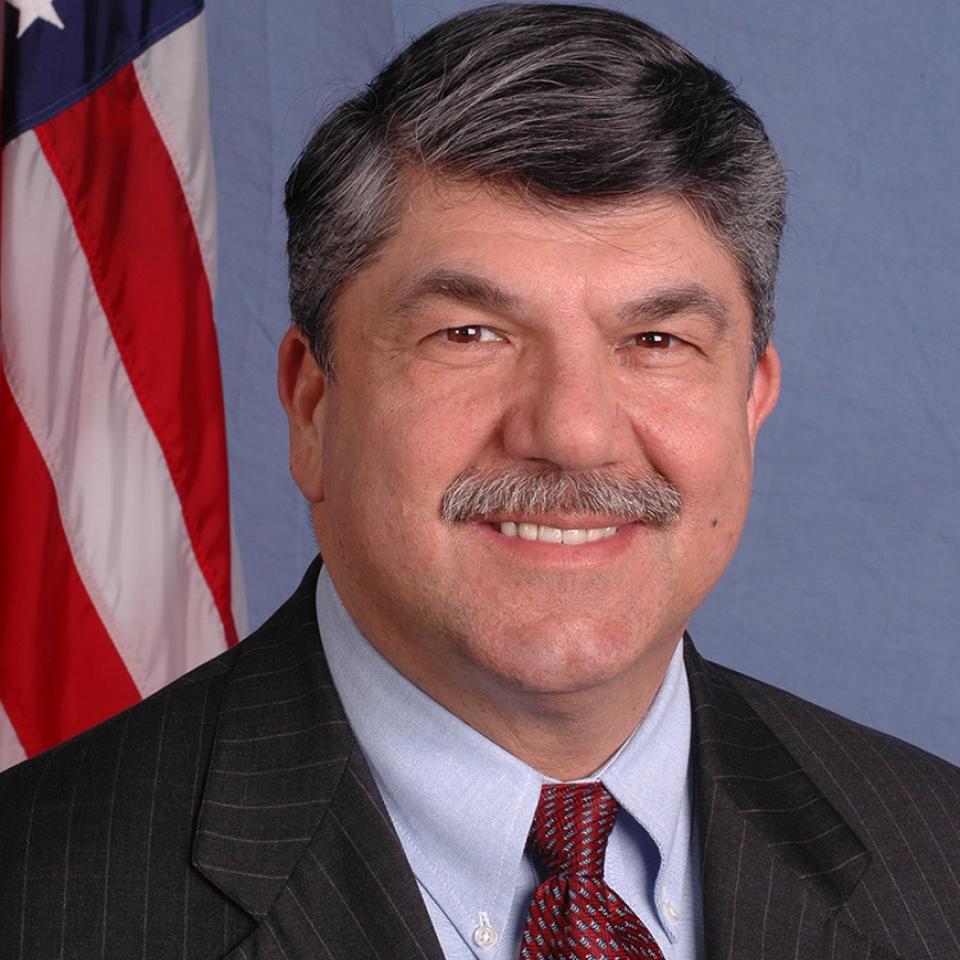Richard L. Trumka was president of the 12.5-million-member AFL-CIO from 2009 until his death on August 5, 2021. An outspoken advocate for social and economic justice, Trumka was the nation’s clearest voice on the critical need to ensure that all workers have a good job and the power to determine their wages and working conditions. He led the labor movement’s efforts to create an economy based on broadly shared prosperity and held elected officials and employers accountable to working families.
In 1982, at age 33, Trumka ran on a reform ticket and was elected the youngest president of the United Mine Workers of America (UMWA).
There, in addition to reforming the UMWA’s fractious bureaucracy, he led one of the most successful strikes in recent American history against the Pittston Coal Company, which tried to avoid paying into an industry-wide health and pension fund.
Trumka was elected AFL-CIO secretary-treasurer in 1995, and held that post until 2009, when he was elected president.
Trumka’s economic advocacy extended from the kitchen table and spanned the globe. He rallied international labor support for workers struggling for justice, and fought to end unfair trade practices and restore U.S. manufacturing strength. As secretary-treasurer, he carved out an innovative leadership role that continues today, working with programs that invest the collectively bargained pension and benefit funds of the labor movement to ensure they serve the long-term interests of workers.
Trumka’s commitment to improving life for working people began early. He grew up in the small coal-mining town of Nemacolin, Penn. Nearly all the men in his family, including his father and grandfather, were coal miners. Trumka followed them into the mines, working there as he attended Penn State and Villanova University law school.
Solidarity and his determination to improve life for all working families was a driving force in Trumka’s life as a labor leader. Comprehensive immigration reform was a central part of that goal. Trumka’s work on behalf of immigrants was just one facet of his deep commitment to securing economic and social justice for all working people.
Trumka envisioned an economy of shared prosperity for all working families—an economy of rising wages, equal pay, respect at work, safe jobs, secure retirement, and the freedom for all workers to form or join unions and bargain collectively.
Rich Trumka carried with conviction throughout his life the power of solidarity and commitment—from the mines of southwest Pennsylvania to the helm of America's largest federation of unions. With solidarity and commitment, we all have a chance to work in dignity and live well.


